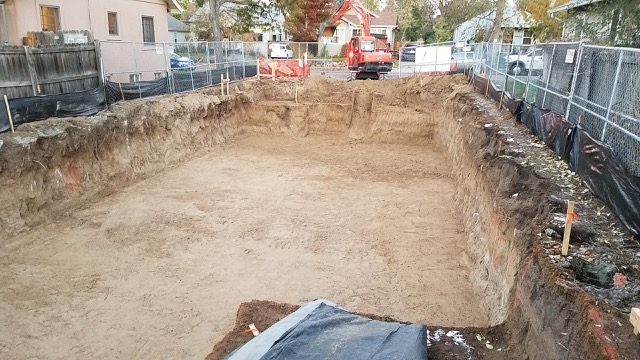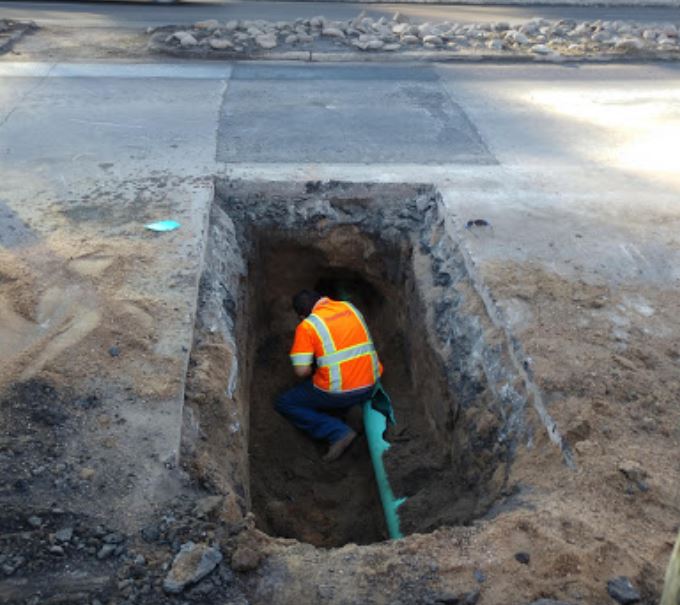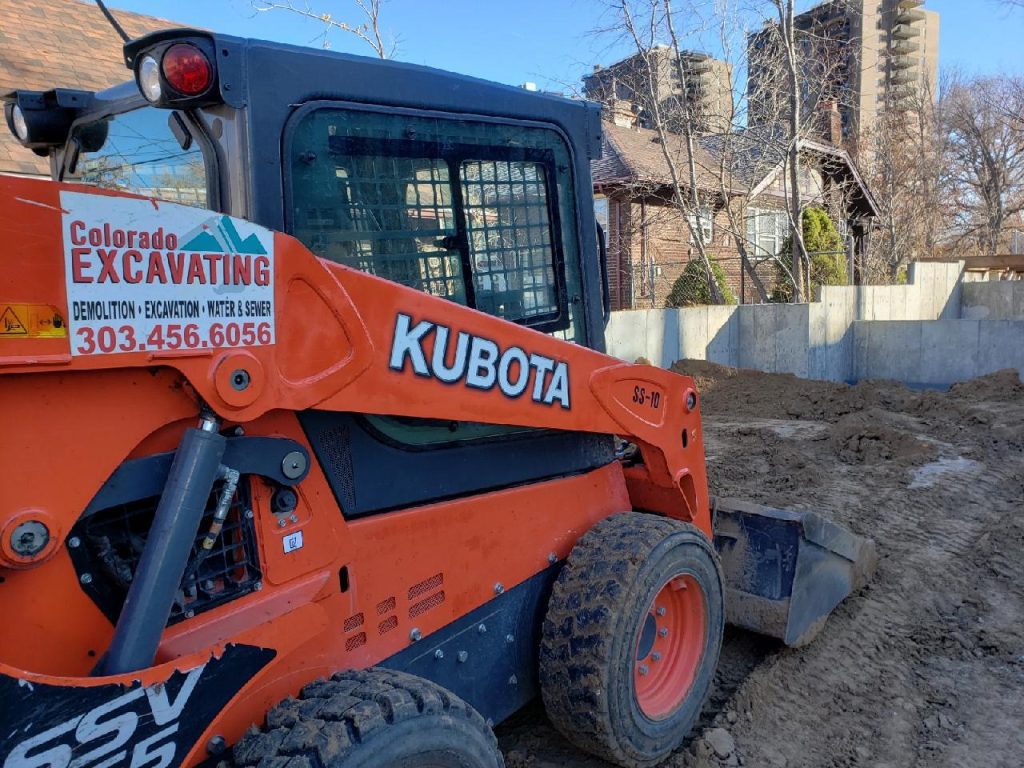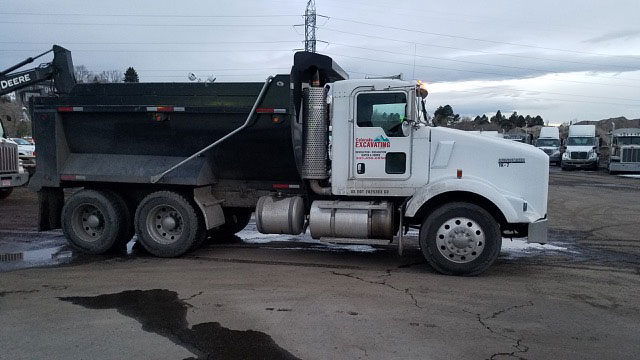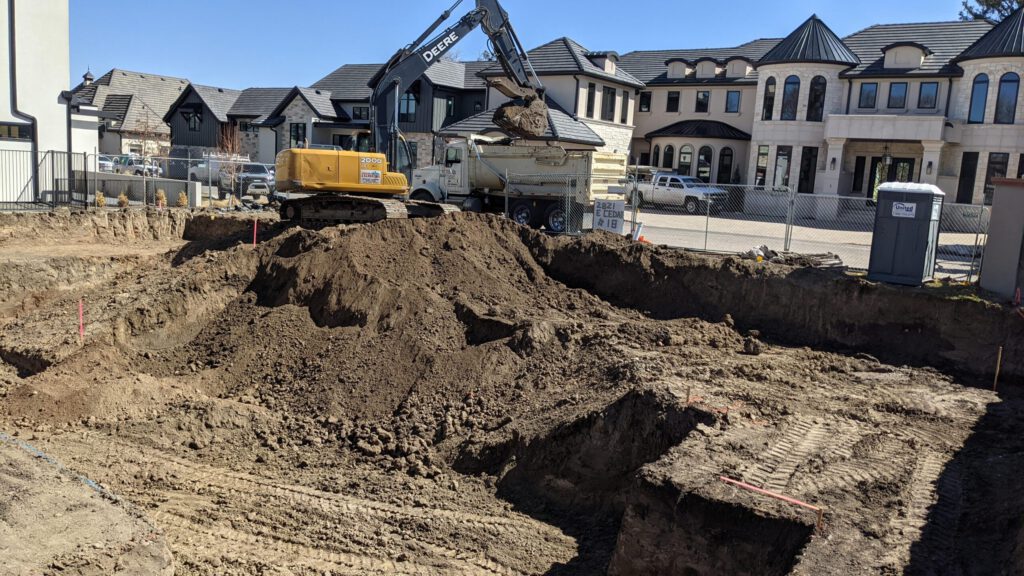Finding the Best Lot Grading Contractor
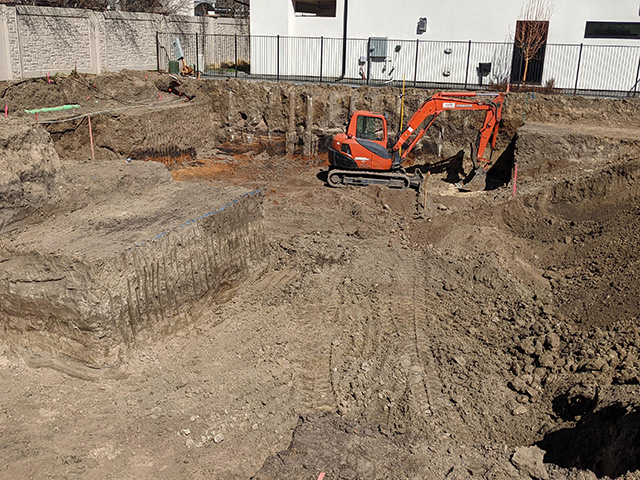
Before you even think about building a home or any other type of building, there’s one thing you need to do to ensure its future health – hiring a lot leveling and grading contractor for proper drainage. While having an even lot is often something people forget about when commissioning a new construction, it’s no less important. In this article, we’ll run you through what lot grading and leveling are, and why you should hire a grading contractor and a sloping contractor.
What is Lot Grading?
Lot grading is the act of evaluating a lot for its ability to be safely built on. Lot graders chiefly measure a lot’s type and elevation, and let those results inform the next step – lot leveling. One of the main purposes of lot grading is to ensure that water flows properly around the home when it rains – a poorly graded lot can have consequences that we’ll touch on in a minute.
What is Lot Leveling?
Lot leveling is the act of preparing the lot for building. It involves literally leveling the lot so that it’s flat to build on, and sloping the lot so that water is drained properly and directed away from the lot. There’s not a modern structure in existence that hasn’t had its lot leveled before building.
Property grading usually occurs in the initial stages of construction and the final finishing touches. In all cases, building plots and building sites should be landscaped to make them suitable for construction, i.e. tree roots, bushes, small hills, and larger mounds should be leveled.
Balancing is a key part of the lot grading process because the land must not only be excavated but in the case of many plots, it must also be filled on other parts. In some cases, this can be done with the help of on-site logistics, while in other cases, the excavated earth has to be transported to the construction site or the other way round, additional material needs to be available on-site for backfilling.
Why are Lot Leveling & Lot Grading Contractors Important?
In short, the best leveling and lot grading contractors are the ones you don’t ever have think about because their experience and track record speak for itself.
Good grading and leveling jobs keep your house level and stable, and water only where it’s supposed to be. If you’ve never noticed structural issues in your home, and never noticed water damage in your basement or foundation, you owe much of that to those who graded and leveled your lot.
However, poorly graded and leveled plots can prove to be a nightmare. Damaged foundation, leaks in unexpected places, and standing water in your basement are just some of the things you’ll risk with a poorly graded lot.
A bad lot grading job can cost you thousands in repairs in the future, if not more. It’s paramount that you grade and level correctly now so that you can avoid huge repair bills in the future, and the best way to ensure a good grade and level is to trust an expert. DIY grading jobs may save you a few dollars now, but without the tools and expertise of a seasoned lot grader and leveler, you’re putting your property at risk before it’s even built.
Even before you buy a property, you should obtain an expert’s opinion on the extent of the work you can expect in the future, as this may be a factor that affects the final purchase price. If you are planning a purchase, construction, renovation, or landscaping project, contact our Customer Success Team at any of our contact information and we will be happy to assist you with the design, permitting, and construction.

